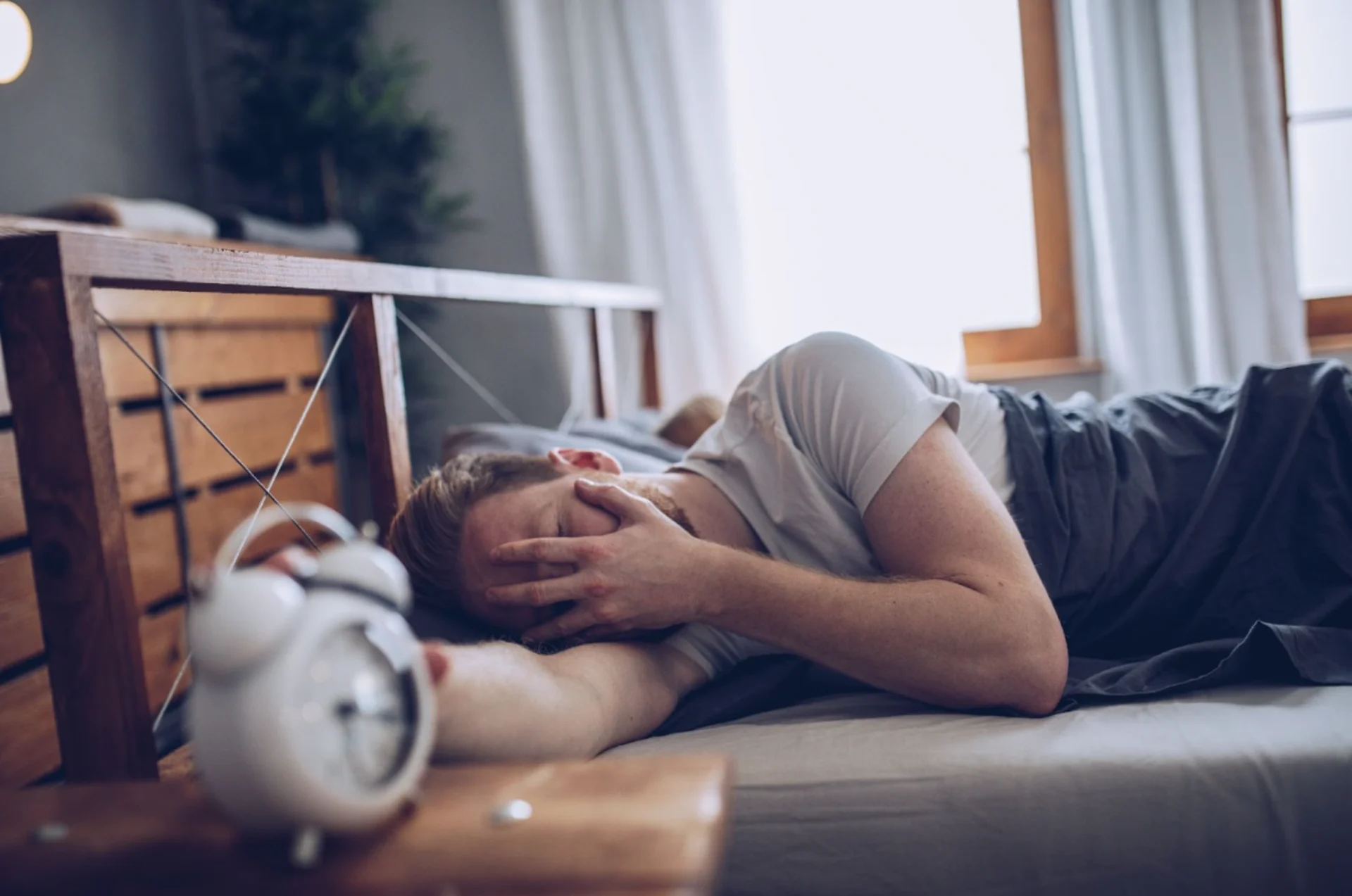
These sleep-sabotaging habits could be keeping you up at night
Ever find yourself lying in bed, staring at the ceiling, wondering why sleep just won’t come?
You’re not alone.
A new Leger survey shows that restless nights are a common struggle for many Canadians.
“Over half of adult Canadians recognize the fact that they don’t sleep well or sleep enough—and it’s time to do something about it,” explained Dr. David Greenberg.
Dr. Greenberg, a general practitioner and sleep expert, is urging Canadians to take their sleep more seriously. The solution, he says, starts with avoiding some key missteps.
SEE ALSO: Is the weather fully to blame for your migraine?
Is the weather to blame?
“Weather impacts sleep in different ways, first of all, temperature. Most people need to be a couple of degrees lower than they are during the day to sleep. Another factor is barometric pressure,” Dr. Greenberg explained.
Shifts in barometric pressure—especially before a storm—can trigger pain and inflammation. Conditions like nerve irritation, swollen joints, and migraines can make it hard for both body and mind to wind down.
“The pressure doesn’t interfere with your sleep as much as it causes exacerbations in the stuff that messes with your sleep.”
If your body seems to sense a storm before it hits, and it’s interfering with your rest, don’t just push through it—seek professional help.
DON'T MISS: The surprising factors that could be keeping you up at night
WATCH BELOW: Warmer nights have you sweating? 6 sleep hacks for a cooler snooze
Viral sleep hacks: Hit or miss?
From sleepy mocktails to mouth taping, sleep "hacks" have taken over the internet. But are they actually effective?
Dr. Greenberg says the best approach isn’t trendy—it’s timeless: go to bed early enough to get the rest you need.
“I think that the main thing is that people should be initiating changes that are sustainable… Five years from now, people are not going to be taping their mouths shut. The fact is, we've developed this so-called roadmap that allows people to initiate really straightforward… long-term changes that are sustainable and will help you with sleep.”
That includes avoiding caffeine late in the day, living a healthy lifestyle, and sticking to a consistent bedtime routine. And if you wake up each morning still feeling exhausted, that’s a sign something needs to change.
SEE ALSO: Weatherproof your bedroom for a good night's rest
The consequences of poor sleep go far beyond just feeling groggy. Lack of rest is linked to serious health issues, including high blood pressure, diabetes, obesity, depression, and anxiety.
"We need to flip the switch," he continued. "People sleep when they’re not busy, but really, we need to be busy when we’re not asleep. Sleep just isn’t a priority the way it should be."
That’s why your doctor asks about your sleep during a check-up—it’s just as crucial as diet and exercise when it comes to your overall well-being.
Your bedroom should be for sleeping
“Make sure you go to bed early enough that you have seven to nine hours of sleep, and when you walk into your room, your brain doesn’t know why you’re there,” said Dr. Greenberg.
In other words, reserve your bedroom for rest. If you’re working, watching TV, or eating in bed, your brain stops associating the space with sleep.
One of the biggest culprits of modern sleep disruption? Your phone. Even ten minutes of scrolling can stretch into hours before you know it. Try leaving your phone out of reach and use a traditional alarm clock instead—it’s a small change that can lead to a much better night’s sleep.
“How good you are at dealing with issues that come up during the day, the vagaries of life. You know, you're going along all day, and all of a sudden all hell breaks loose. If you're well rested, you can deal with that,” explained Dr. Greenberg.
Bottom line: if you’re not sleeping enough, it’s going to catch up with you. Sleep isn’t a luxury—it’s essential.
If you’ve tried the usual sleep hygiene advice and still feel off, Dr. Greenberg recommends talking to your doctor.
“If you have done all those things, please talk to someone,” said Dr. Greenberg.
“There are medications now that are new and different, that aren't habit-forming… For the first time ever in the history of drugs for sleeping, they're designed to help you stay asleep rather than just fall asleep. They do help fall asleep a little bit, but they help a lot with staying asleep. So even if you do wake up in the middle of the night, you're able to get this back to sleep really quickly, and that's really, really helpful,” he continued.
Sleepiness isn’t something you have to live with—and it shouldn’t be normal. If you’re constantly feeling tired, foggy, or run down, it’s time to stop brushing it off.
Whether it’s adjusting your routine, changing your environment, or talking to your doctor, small changes can lead to big improvements. A well-rested you is a healthier, happier, more focused you.
Better sleep might just start tonight.
